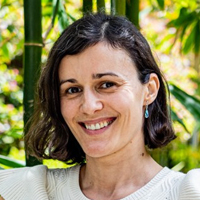
Corina Antal, PhD
Assistant Professor of Pharmacology, Moores Cancer Center, UC San DiegoBio
Cancer arises from the concerted action of genetic mutations and epigenetic changes that lead to transcriptional alterations, ultimately impacting signal transduction. Our interests lie in investigating the interplay between epigenetics, RNA processing, and cell signaling to uncover new mechanisms underlying cancer progression. Our research goals are to identify novel epigenetic vulnerabilities in cancer and to elucidate mechanisms of posttranslational regulation of RNA-binding proteins that play a key role in tumorigenesis, in an effort to uncover new therapeutic approaches for cancer treatment. Dr. Antal’s laboratory uses a multidisciplinary approach to investigate the molecular underpinnings of pancreatic cancer progression, including epigenomics, high-throughput CRISPR and DNA base editing screens, computational approaches, and mouse models of pancreatic cancer.
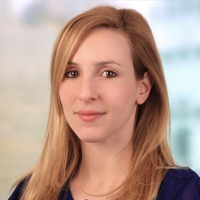
Aliza Apple, PhD
SSF Site Head, COO & Head of Lilly Gateway Labs West CoastBio
Aliza Apple, Ph.D., joined Lilly in May 2023 and is the COO & Head of Lilly Gateway Labs West Coast. Prior to joining Lilly, Aliza served as a co-founder at Santa Ana Bio, a venture-backed precision biologics company. Additionally, she served as an advisor to Firefly Biologics, a Versant Ventures company focused on ADC technology. Prior to biotech, Aliza was a Partner in McKinsey’s life sciences practice. Aliza completed her B.Sc. in Physics at Georgetown University and her PhD in Bioengineering from UC Berkeley & UCSF. She completed a Post-Doctoral Fellowship at Cornell Medical College supported by the NIH Kirschtein National Research Service Award.
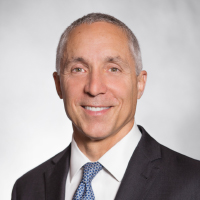
Joseph Califano, MD
Director, Moores Cancer Center, Director, Hanna and Mark Gleiberman Head and Neck Cancer Center, Co-Leader, Structural and Functional Genomics, Moores Cancer Center, Professor and Iris and Matthew Strauss Chancellor’s Endowed Chair in Head and Neck Surgery, Department of Otolaryngology-Head and Neck Surgery, UC San DiegoBio
Joseph A. Califano III, MD, is Director of Moores Cancer Center at UC San Diego Health. Dr. Califano is a board-certified otolaryngologist. He is an internationally recognized head and neck surgeon who specializes in tumors of the oral cavity (mouth), salivary glands, pharynx (throat), larynx (voice box), sinuses, thyroid, and skull base. Dr. Califano has expertise in minimally invasive surgical techniques, including endoscopic laser and robotic surgery, to help best preserve function and appearance in his patients. He has an interest in HPV-related cancers of the throat, as well as premalignant conditions of the upper aero digestive tract.
His other areas of investigation include integrative network-based molecular analysis of head and neck tumors; detection of recurrent and occult primary cancer within blood and saliva using molecular biologic techniques; and defining the underlying biology of head and neck cancers.
A frequent speaker at national and international meetings, Dr. Califano has coauthored numerous textbooks and book chapters and over 230 peer-reviewed articles related to both clinical and scientific aspects of cancer. His work has appeared in Nature, Oral Oncology and Clinical Cancer Research, among others. He reviews and serves on the editorial board for a variety of medical journals, including Oral Oncology, the most respected specialty journal in head and neck cancer.
In his free time, Dr. Califano enjoys rock climbing, and is learning how to surf. He and his wife, Beth, have two children.
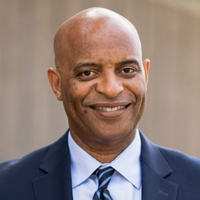
John M. Carethers, MD
Vice Chancellor for Health Sciences, UC San DiegoBio
Dr. Carethers is the Vice Chancellor for Health Sciences at the University of California, San Diego. In this role, he leads the School of Medicine, Skagg School of Pharmacy and Pharmaceutical Sciences, Herbert Wertheim School of Public Health and Human Longevity Science, and UC San Diego Health. Dr. Carethers is an elected member of the National Academy of Medicine and the American Academy of Arts and Sciences. He’s also the president of the American Association of Physicians.
Dr. Carethers received his MD from Wayne State University School of Medicine in 1989. He completed his residency in Internal Medicine at Massachusetts General Hospital in 1992 and his gastroenterology fellowship at University of Michigan in 1995.
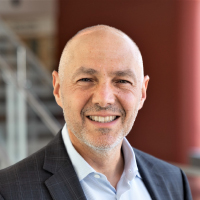
Ezra Cohen, MD
Chief Medical Officer of Oncology, Tempus AIBio
Dr. Cohen is a leading medical oncologist and cancer researcher who brings a unique combination of extensive clinical and research experience to Tempus’ leadership team. He was most recently the Chief of the Division of Hematology-Oncology as well as the Associate Director of Clinical Science at UC San Diego (UCSD) Moores Cancer Center. Dr. Cohen also led the Precision Immunotherapy Clinic and co-directed the San Diego Center for Precision Immunotherapy at UCSD. Before UCSD, Dr. Cohen spent 15 years at the University of Chicago, where he was the co-director of the Head and Neck Cancer Program as well as Hematology/Oncology Fellowship Program Director.
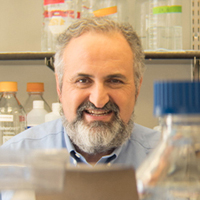
Dmitry Gabrilovich, MD, PhD
Executive Director and Chief Scientist, Cancer Immunology, AstraZenecaBio
Dmitry Gabrilovich, MD, Ph.D., is an Executive Director and Chief Scientist, Cancer Immunology, AstraZeneca. He studied dendritic cell (DC) biology under Dr. Stella C. Knight at the Imperial College of London in the UK and then was trained in cancer research at U.T. Southwestern Medical School and Vanderbilt University. In mid-1990s his group demonstrated, that DCs in cancer were functionally impaired. They have described the first tumor-derived factor directly implicated in DC defects in cancer and suggested that myeloid progenitor cells were the main targets for this negative effect. His group implicated lipid accumulation as one of the mechanisms negatively regulating function of DCs in cancer. Dr. Gabrilovich made major contribution to the discovery of cells that now called myeloid-derived suppressor cells (MDSC). His group characterized these cells, described number of molecular mechanisms regulating expansion and function of these cells. His group provided first evidence that MDSC can be therapeutically targeted in patients. Dr. Gabrilovich was involved in number of clinical trials testing the effect of cancer vaccines and small molecules and antibodies that target myeloid cells. Before joining AstraZeneca Dr. Gabrilovich was Robert Rothman Endowed Chair in Cancer Research and Head, Section of Dendritic Cell Biology at H. Lee Moffitt Cancer Center and then Christopher M. Davis Professor in Cancer Research at the Wistar Institute in Philadelphia and Wistar Professor at the Department of Pathology and Laboratory Medicine, Perelman School of Medicine, University of Pennsylvania. Dr. Gabrilovich is American Cancer Society Research Professor and during last 8 years is listed as one of the most highly cited researchers in the field of Immunology.
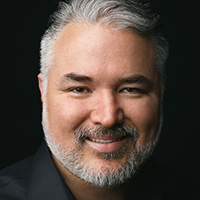
Jarret Glasscock, PhD
Founder and CEO, Cofactor GenomicsBio
Jarret Glasscock is a geneticist and computational biologist who leads the team at Cofactor Genomics, a diagnostics company leveraging the power of RNA data to build diagnostics that predict response to immunotherapy. Prior to founding Cofactor Genomics, Jarret was faculty in the Department of Genetics at Washington University and part of The Genome Institute. While at WashU, he was involved in the Human Genome Project, published the first Cancer Genome, lead the Institute’s Computational Biology Group, and was part of the Institute’s Technology Development Group tasked with characterizing the first RNA-seq experiments on early instruments such as 454 and Illumina/Solexa (Serial #1).
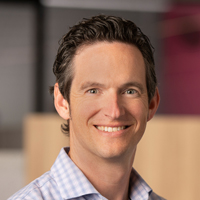
Jacob R. Haling, Ph.D.
Head, Cancer Therapeutics, Novartis Biomedical ResearchBio
Jacob Haling (Jake) currently serves as Head of Cancer Therapeutics at Novartis Biomedical Research where he oversees a multidisciplinary team focused on target discovery, drug development, and delivery into the clinic. Dr. Haling has 20 years of drug-discovery experience, with the past 12+ years focused on discovering and progressing drug candidates into the clinic for oncology indications. Prior to joining Novartis, he served as Senior Director of Mirati Therapeutics where he led the pre-clinical development of multiple KRAS/MAPK pathway inhibitors. Dr. Haling received his Ph.D. in Molecular Pathology at UC San Diego under the tutelage of Dr. Mark Ginsberg and did his post-doctoral training at Genentech with Dr. Shiva Malek.
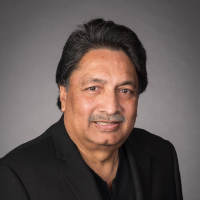
Fairooz Kabbinavar, MD, FACP
Chief Medical Officer, Cardiff OncologyBio
Fairooz Kabbinavar, MD, FACP, serves as Chief Medical Officer at Cardiff Oncology, overseeing the clinical development program for the Company's investigational drug onvansertib. Dr. Kabbinavar joins Cardiff Oncology with more than 30 years of experience that bridges both the academic and biotech/pharmaceutical sectors. He spent 25 years as an academic oncologist at the University of California, Los Angeles (UCLA), holding appointments including Full Professor of Medicine and urologic oncology with an Endowed Chair for cancer research. He joined the biotech industry as the principal medical director in Genentech's immuno-oncology program, where he led the clinical development of atezolizumab (TECENTRIQ®) in extensive stage small cell lung cancer and oversaw the filing of the supplemental biologics license application that led to the drug's FDA approval. Most recently, Dr. Kabbinavar was the global head of research and development at Huyabio International. Prior to joining Huyabio, he served as senior vice president (SVP) of clinical research and development at Puma Biotechnology, and CMO and SVP of clinical development at Tocagen, Inc.
As both a clinical oncologist and biopharma executive, Dr. Kabbinavar brings deep knowledge of colorectal cancer, as well as other solid tumor cancers. While at UCLA, he participated in over 125 oncology clinical trials as PI, and served as lead investigator for two practice-changing trials of bevacizumab (Avastin®) combinations leading to approval of bevacizumab in mCRC. He also led a phase III study to FDA approval of Atezolizumab (anti-PDL1 Ab/Check Point Inhibitor) in combination with chemotherapy in extensive stage SCLC. He has experience in development of Immuno-Oncology drugs, gene therapy, intra-tumoral injection of drugs and a variety of other targeted therapy molecules.
Dr. Kabbinavar has published over 100 articles in peer-reviewed journals such as the New England Journal of Medicine (senior author) and Journal of Clinical Oncology (lead author). Dr. Kabbinavar holds BSc, MBBS and MD degrees from Nagpur University, India, and completed multiple fellowships in UCLA's Division of Hematology/Oncology, as well as an internship and residency at Harvard University's Beth Israel Deaconess Medical Center in Boston.
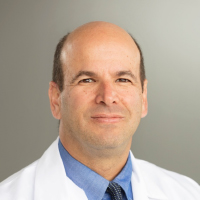
Dan Kaufman, MD, PhD
Professor of Medicine, Division of Regenerative Medicine, Director of Cell Therapy, UC San DiegoBio
Dr. Kaufman is a Professor in Department of Medicine, Division of Regenerative Medicine and Director of the Cell Therapy program at the University of California-San Diego (UCSD).
Following undergraduate studies at Stanford University, he completed a combined MD/PhD program at Mayo Clinic and a clinical residency and fellowship in internal medicine and hematology at the University of Wisconsin-Madison.
Dr. Kaufman also provides clinical care for patients with hematological malignancies, with special interest in blood and marrow transplantation (BMT) and immune therapies.
The Kaufman laboratory uses human pluripotent stem cells to understand the development of blood cells. The aim is to use human embryonic stem cells (hESCs) and human induced pluripotent stem cells (iPSCs) as a resource to produce blood and immune cells (mainly natural killer cells) for new clinical applications for treatment of relapsed/refractory cancers — both hematologic malignancies and solid tumors. The lab is also working on production of blood cells (monocytes and macrophages) that can be used for tissue repair and regeneration.
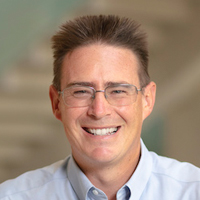
Rob Knight, PhD
Director, Center for Microbiome Innovation, Professor of Pediatrics, Bioengineering, and Computer Science & Engineering, UC San Diego, Wolfe Family Endowed Chair in Microbiome Research, Rady Children’s HospitalBio
Rob Knight is the founding Director of the Center for Microbiome Innovation and Professor of Pediatrics and Computer Science & Engineering at UC San Diego. Before that, he was Professor of Chemistry & Biochemistry and Computer Science in the BioFrontiers Institute of the University of Colorado at Boulder, and an HHMI Early Career Scientist. He is the Wolfe Family Endowed Chair in Microbiome Research. He is a Fellow of the American Association for the Advancement of Science and of the American Academy of Microbiology. He was recently honored with the 2019 NIH Director’s Pioneer Award for his microbiome research. He received the 2017 Massry Prize, often considered a predictor of the Nobel. In 2015 he received the Vilceck Prize in Creative Promise for the Life Sciences. He is the author of “Follow Your Gut: The Enormous Impact of Tiny Microbes” (Simon & Schuster, 2015), coauthor of “Dirt is Good: The Advantage of Germs for Your Child’s Developing Immune System (St. Martin’s Press, 2017) and spoke at TED in 2014. His lab has produced many of the software tools and laboratory techniques that enabled high-throughput microbiome science, including the QIIME pipeline (cited over 17,000 times as of this writing) and UniFrac (cited over 7000 times including its web interface). He is co-founder of the Earth Microbiome Project, the American Gut Project, and the company Biota, Inc., which uses DNA from microbes in the subsurface to guide oilfield decisions. His work has linked microbes to a range of health conditions including obesity and inflammatory bowel disease, has enhanced our understanding of microbes in environments ranging from the oceans to the tundra, and made high-throughput sequencing techniques accessible to thousands of researchers around the world.
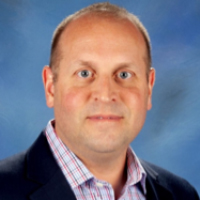
Peter Krein, PhD
Senior Vice President, Precision Medicine, Boundless BioBio
Peter Krein joined Boundless Bio in January 2022, leading Precision Medicine objectives related to identifying patients with ecDNA oncogene amplified tumors. Prior to Boundless Bio, Dr. Krein was Executive Director of Clinical Biomarkers and Diagnostics at Eli Lilly overseeing biomarker discovery, assay development and partner selection for patient identification into oncology and neurology clinical studies. He joined Eli Lilly through its acquisition of Loxo Oncology where he served role as national diagnostic lead the development and launch of the NTRK inhibitor larotrectinib and the RET inhibitor selpercatinib. Prior to Loxo Oncology, Dr. Krein was a consultant with Diaceutics where he engaged with several pharmaceutical companies supporting biomarker and diagnostic strategies for pipeline assets. Dr. Krein spent the first decade of his career in roles of increasing responsibility in in vitro diagnostic development including Ventana Medical Systems (acquired by Roche) and QIAGEN, where he led diagnostic medical and development functions. Dr Krein earned a B.S. in Microbiology and Immunology from the University of Rochester, and a Ph.D. in Molecular Biology and Medical Sciences from the University of Calgary. He completed a postdoctoral fellowship in functional genomics at the University of Arizona.
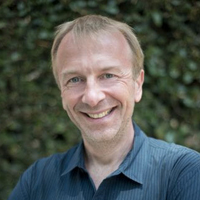
Peter Kuhn, PhD
Dean’s Professor of Biological Sciences and Professor of Medicine, Biomedical Engineering, Aerospace & Mechanical Engineering, and Urology, USCBio
Peter Kuhn is a scientist and entrepreneur with a career long commitment in personalized medicine and individualized patient care. He is focused on the redesign of cancer care. Kuhn’s research team in physics oncology has discovered new ways of how cancer spreads to the human body and is using those breakthroughs to impact patient care.
Dr. Kuhn is the Dean’s Professor of Biological Sciences and Professor of Biological Sciences, Medicine, Biomedical Engineering, Aerospace and Mechanical Engineering and Urology in the USC Dornsife College of Letters, Arts and Sciences. He is a founding member of the Michelson Center for Convergent Biosciences, a co-founder of the USC Michelson Center for Convergent Bioscience Bridge Institute and director of the Convergent Science Institute in Cancer (CSI-Cancer). Dr. Kuhn’s strategy is to advance our understanding of the human body to improve the human condition. His research is shedding new light at how cancer spreads through the body. This new science will lead to a personalized care strategy that is biologically informed and clinically actionable.
Dr. Kuhn is a physicist who trained initially at the Julius Maximilians Universität Würzburg, Germany, before receiving his Masters in Physics at the University of Albany, Albany, NY in 1993 and his Ph.D. in 1995. He then moved to Stanford University where he later joined the faculties of Medicine and Accelerator Physics. From 2002 to 2014, he established a translational science program at The Scripps Research Institute in La Jolla, CA bringing together over forty scientists from basic, engineering and medical sciences to work on understanding the spread of cancer in the human body. He has published over 200 peer-reviewed scientific articles and patents as a result of his research. He founded Epic Sciences, Inc. in 2009 to develop cancer diagnostic products. Today Epic Sciences is a premier partner to most pharmaceutical and biotech companies in the development of precision companion diagnostics for cancer care.
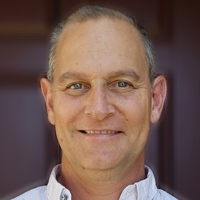
Brian McCloskey
Patient Advocate and Co-Founder, Cancer Patient LabBio
Brian McCloskey is a patient advocate and Co-Founder of the Cancer Patient Lab, a patient-led non-profit whose mission is to safely and effectively accelerate translational medicine through the power of the patient’s voice. Founded in March, 2022, the Cancer Patient Lab provides advanced cancer patients access to weekly interactive lectures from key opinion leaders, data-driven/personalized treatment options through a growing network of service providers, and a patient support community of “citizen scientists” who see opportunities beyond the standard of care.
In 2021, Brian initiated an effort with the Ellison Institute for Transformative Medicine and Reboot Rx, a drug repurposing company to use their AI/ML/NLP technology to identify FDA-approved generic drugs that could be repurposed for prostate cancer. This promising work continues with the hope of a clinical trial in the near future. Since his cancer journey began in 2016, Brian has provided a variety of patient advisory services to big pharma, life sciences, academia, and healthcare. His motivation to better understand his cancer has led to the use of advanced diagnostics to guide his own treatment decisions.
Before he became an advanced cancer patient, Brian spent over 25 years as a marketing executive in technology and healthcare with significant experience building data-driven solutions to personalize consumer experiences. Brian is a husband and father of 3 and lives in San Diego where he loves to surf.
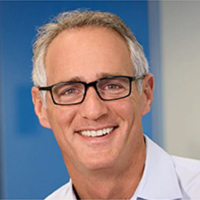
Mike Pellini, MD
Managing Partner, Section 32Bio
Michael Pellini, MD, is a managing partner of Section 32, a venture capital fund investing at the frontiers of technology, health care, and life sciences. Prior to joining Section 32 in 2017, Dr. Pellini served as CEO and then chairman of Foundation Medicine, a company that transformed the way pharmaceutical companies and physicians evaluate the genomic changes underlying a patient’s cancer, through the close of Roche’s acquisition in August 2018. Previously, Dr. Pellini was president and COO of Clarient, a national leader in molecular pathology, which was acquired by GE Healthcare in 2010. Dr. Pellini brings a breadth of understanding in personalized medicine, with a lifetime interest and focus on defeating cancer. Dr. Pellini currently serves as a board member for TwinStrand Genomics, Nusano, Singular Genomics (‘OMIC’), Adaptive Biotechnologies (‘ADPT’), Octave BioSciences, Sema4 ('SMFR'), Exai Bio, and the Personalized Medicine Coalition. He previously served on the board of Thrive Earlier Detection, which was acquired by Exact Sciences (‘EXACT’) in January 2021, as well as Tango Therapeutics (‘TNGX’). Dr. Pellini is also a member of the President’s Leadership Council at Thomas Jefferson University. Dr. Pellini joined the American Cancer Society Board of Directors in 2023.
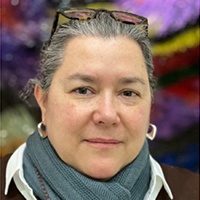
Teresa Ramirez Montagut, MD, PhD
Executive Medical Director, Global Head of GI, GU, Women’s Cancers, & Early Pipeline, Oncology Medical Affairs, RegeneronBio
Dr. Teresa Ramirez Montagut holds a Medical Doctor degree from the National University of Mexico (Universidad Nacional Autónoma de México -UNAM-) and a Ph.D. in Tumor Immunology from Memorial Sloan-Kettering Cancer Center (MSKCC)/Cornell University. Her training includes a research fellowship in pathology at the Massachusetts General Hospital and post-doctoral fellowships in cancer immunotherapy at MSKCC and the Howard Hughes Medical Institute at Rockefeller University.
Dr. Ramirez Montagut has led different cancer immunotherapy efforts at Novartis, Genentech, Atara Biotherapeutics, and Regeneron, including cancer vaccines, TLR agonists & TME modulators, costimulatory molecules, immunocytokines, checkpoint inhibitors, and CAR T-cell programs. Her leadership has spanned target identification and validation, biomarker/CDx development, and medical affairs. At Regeneron, Dr. Ramirez Montagut is an Executive Medical Director and Global Head of GI, GU, Women’s Cancers, & Early Pipeline in Oncology Medical Affairs.
To give back to her community, Dr. Ramirez Montagut serves as a member of the Board of Directors of the Global Pediatric Alliance (GPA). GPA is a non-profit organization that supports development of healthcare for maternal and pediatric populations of underserved indigenous communities in Latin America, especially, in her native Mexico.
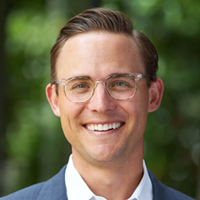
Hunter Reed, MBA
Vice President - Science & Technology, Alexandria Venture Investments, Alexandria Real Estate Equities, Inc.Bio
Hunter Reed, MBA, is a Vice President – Science & Technology at Alexandria Real Estate Equities, Inc., an S&P 500® urban office REIT (Alexandria), and Alexandria Venture Investments, the company’s strategic venture capital platform. In his role, Mr. Reed manages venture investments, tenant underwriting, and business development in Alexandria’s San Diego cluster. Through Alexandria Venture Investments, Mr. Reed has led/co-led and manages more than 30 early- and growth-stage Southern California life science investments spanning therapeutics, research tools, and molecular diagnostics.
Formerly, Mr. Reed held roles across multiple early-stage, venture-backed life science startups in the San Diego ecosystem with a focus on corporate strategy and business development. Prior to these roles, he spent over a year with life science venture firm, Domain Associates, while completing his MBA studies. Mr. Reed holds an MBA in Venture Finance from San Diego State University and a BA from the University of Virginia.
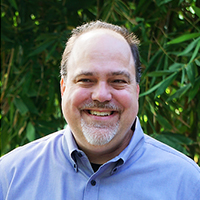
David Schlaepfer, PhD
Professor, Department of Obstetrics, Gynecology, and, Reproductive Sciences, Moores Cancer Center, UCSDBio
David was an Assistant and Associate Professor at The Scripps Research Institute from 1996 to 2007 before joining The Department of Obstetrics, Gynecology, and Reproductive Sciences at the UCSD Moores Cancer Center as a Professor in 2007. Over the last 20+ years, David has trained thirty graduate students, postdoctoral, or MD fellows who have achieved productive careers in academia, medicine or in the biopharmaceutical industry. He is motivated by basic research questions that have a strong translational potential. FAK is an exciting target to study because inhibitors to FAK are currently being tested in clinical trials, one of which is the ROCKIF (Resensitization of platinum-resistant ovarian cancer by kinase inhibition of FAK) trial at the Moores UCSD Cancer Center. David’s lab provides a supportive training environment that is interactive, focuses on enhancing verbal and writing communication skills, data analysis, and critical review.
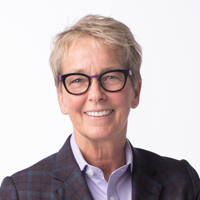
Laura Shawver, PhD
President and Chief Executive Officer, Capstan TherapeuticsBio
Dr. Laura Shawver is a pioneer in healthcare with a deeply personal mission who brings over two decades of leadership experience in the biotechnology industry and patient advocacy to her career, which is centered around creating new paradigms in research and treatment for cancer patients and other serious diseases.
Dr. Shawver views the field of oncology from the perspective of a scientist, drug developer and survivor. As a scientist, she conducted research in the field of oncogenes, growth factors and signal transduction pathways. This work paved the way for her early drug development career in biotech focused on angiogenesis inhibitors and precision medicine, alongside a passion for providing cancer patients with treatment that matched their tumor alterations. Following her own diagnosis and treatment for ovarian cancer in 2006, she founded The Clearity Foundation to help revolutionize ovarian cancer treatment and create a community of support for women living with the disease and their families. The Clearity Foundation’s services include helping women gain access to molecular profile tests to help understand their tumor alterations, sharing the latest information on potential treatment options, guiding women to appropriate clinical trials and providing psychosocial support. Since her recovery from ovarian cancer, Dr. Shawver continues to seek ways to change the paradigm for cancer treatment through her leadership roles in biotech, both as CEO and serving on Boards including those working on precision medicines, AAA ATPases, cytokines, cell therapy and mRNA therapies.
Prior to her current role as President and Chief Executive Officer at Capstan Therapeutics, a company developing targeted in vivo RNA technologies using targeted lipid nanoparticles (tLNPs) for diseases including cancer and autoimmune disorders, Dr. Shawver held the role of Chief Executive Officer at multiple organizations, including Silverback Therapeutics, Synthorx, Inc., Cleave Biosciences, Phenomix Corporation and SUGEN, Inc. She currently sits on the Boards of Directors at Relay Therapeutics, Bright Peak Therapeutics, Dovetail Therapeutics and ARS Pharmaceuticals. She is an active member of the American Association for Cancer Research, where she has served on the Scientific Advisory Committee for Stand Up 2 Cancer since its inception in 2008. Throughout her career, Dr. Shawver remains a scientist at heart, having published more than 100 scientific publications, review articles, book chapters and patents.
Dr. Shawver has received many accolades throughout her career, among them the 2023 San Diego BioPharma Achievement Award, 2020 Endpoints Women in Biopharma, 2012 PharmaVOICE 100 and FierceBiotech’s 2011 Women in Biotech. In 2011, she was honored as the University of Iowa’s Distinguished Alumni for her professional achievements, service and influence in the world of science and medicine. She received her Ph.D. in pharmacology from the University of Iowa.
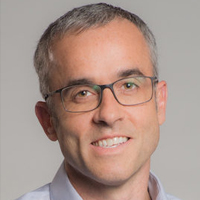
Peter Smith, PhD
Co-Founder, President & Chief Executive Officer, Remix TherapeuticsBio
Pete is Co-Founder, President and Chief Executive Officer of Remix Therapeutics. Prior to Remix, he was Chief Scientific Officer at H3 Biomedicine, a precision oncology company, where he oversaw discovery, non-clinical development, translational research and clinical biomarkers. He was previously at Takeda and Millennium Pharmaceuticals where he focused on oncology drug discovery and early clinical development. He is excited by Remix’s potential to treat a variety of diseases and disorders with their groundbreaking scientific approach to reprogramming RNA. He received his PhD from Newcastle University and completed post-doctoral training at Dana Farber Cancer Institute. Pete also sits on the Board of Directors of Ryvu Therapeutics and is an advisor to several drug discovery companies.
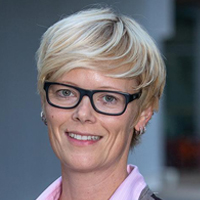
Nicole Steinmetz, PhD
Professor & Vice Chair, Dept. of NanoEngineering; Director of Nano-ImmunoEngineering; Co-Director, Center for Engineering in Cancer; Professor of Radiology & Bioengineering; Moores Cancer Center, San Diego Center for Precision Immunotherapy, Center for Drug Discovery & Innovation, UCSDBio
Dr. Steinmetz is a Professor and Vice Chair of the Department of NanoEngineering at the University of California, San Diego (07/2018-present) and is the Founding Director of the Center for Nano-ImmunoEngineering (nanoIE) and Co-Director of the Center for Engineering in Cancer (CEC). She has Adjunct or Affiliate Appointments as Professor of Radiology, Professor of Bioengineering, Faculty of the Biomedical Science Graduate Program; she is a Member of the NCI-designated Moores Cancer Center, the Institute for Engineering, the San Diego Center for Precision Immunotherapy, the Center for Drug Discovery and Innovation, and the Institute for Materials Design and Discovery.
Dr. Steinmetz started her independent career at Case Western Reserve University School of Medicine in the Department of Biomedical Engineering, where she was promoted through the ranks of Assistant Professor (10/2010-06/2016), Associate Professor (07/2016-12/2017), Full Professor (01/2018-06/2018). In 2017 she was named the George J. Picha Designated Professor in Biomaterials and Director for the Center for Bio-Nanotechnology.
Dr. Steinmetz trained at The Scripps Research Institute, La Jolla, CA where she was a NIH K99/R00 awardee and AHA post-doctoral fellow (2007-2010); she obtained her PhD in Bionanotechnology from the University of East Anglia where she prepared her dissertation as a Marie Curie Early Stage Training Fellow at the John Innes Centre, Norwich, UK (2004-2007). Her early training was at the RWTH-Aachen University in Germany, where she obtained her Diploma (Masters) in Molecular Biotechnology (2001-2004) after completing her pre-Diploma from the Ruhr University Bochum, Germany (1998-2001).
At UC San Diego; Dr. Steinmetz serves as the Founding Director of the Center for Nano-ImmunoEngineering and Co-Director of the Center for Engineering in Cancer. Dr. Steinmetz also is a Co-PI of UC San Diego's NSF-funded Materials Research Science and Engineering Center (MRSEC); and in the MRSEC she serves as the Co-Lead for IRG2 focused on Living Materials. Dr. Steinmetz serves on review panels for NIH, NSF, and CDMRP and she was a standing member of the NIH Nanotechnology study section. She served on the Editorial Board of Wiley Interdisciplinary Reviews (WIREs) on Nanomedicine and Nanobiotechnology; she and currently serves on the Advisory Editorial Board for ACS Nano, Molecular Pharmaceutics, Journal of Materials Chemistry B, Materials Advances and Advanced Therapeutics. Dr. Steinmetz has chaired symposia at American Chemical Society, Materials Research Society, and Foundations of Nanosciences; and she served as Chair of the Gordon Conference of Physical Virology (2015).
Dr. Steinmetz has authored more than 200 peer-reviewed journal articles, reviews, book chapters, and patents; she has authored and edited books on Virus-based nanotechnology. Research in the Steinmetz Lab is and has been funded through grants from federal agencies, including National Institute of Health, National Science Foundation (including an NSF CAREER), US Department of Agriculture (NIFA), and Department of Defense (CDMRP), as well as private foundations, including Susan G. Komen Foundation, American Cancer Society, and American Heart Association. Over the past 10 years, Dr. Steinmetz has been awarded grants as PI and Co-PI totaling $48+ million in total costs.
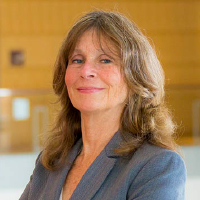
Judith Varner, PhD
Professor of Medicine and Pathology, Moores Cancer Center, UC San DiegoBio
Judy Varner, Ph.D., is Professor in the Departments of Pathology and Medicine at the University of California, San Diego, co-Leader of the Solid Tumor Therapeutics program in the Moores UCSD Cancer Center and Founder of the Myeloid Network. As a member of Moores Cancer Center, her research has focused on mechanisms regulating inflammation in cancer. Her work, which appears in journals that include Cancer Cell, Nature, Nature Communications and Cancer Discovery, has identified novel mechanisms by which macrophages promote tumor growth and has developed new approaches to treat cancer patients by targeting tumor macrophage signal transduction, with a focus on inhibition of PI3Kinase gamma. Dr. Varner is a recipient of the V Foundation Award for Translational Research, the AACR-Landon Foundation Innovator Award for International Collaboration and the Lustgarten Foundation Innovator Award for Pancreatic Cancer Research for her work on immune oncology therapeutics. Dr. Varner is active in the American Association for Cancer Research and the Society for the Immunotherapy of Cancer.
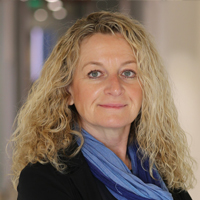
Dominique Verhelle, PhD, MBA
Co-Founder, CEO & CSO, NextRNA TherapeuticsBio
Dominique Verhelle, PhD, MBA, is Co-Founder, Chief Executive Officer, and Chief Scientific Officer of NextRNA. Dominique has over 20 years of industry experience, spanning key scientific leadership roles in biopharma and venture capital. Prior to joining NextRNA, Dominique served as Head of Academic Innovation at Takeda’s Center for External Innovation, where she led efforts to build partnerships for Takeda with leading academic investigators in the United States and globally. During that time, she also served as a Director on the Board of Bridge Medicines, a Takeda Ventures-backed company. Prior to joining Takeda, Dominique was a Principal at Third Rock Ventures, where she cofounded Fulcrum Therapeutics and Cedilla Therapeutics. Before that, Dominique launched and led epigenetic drug discovery efforts in oncology at Celgene and Pfizer for over a decade.
Dominique completed her postdoctoral training in the laboratory of Christopher Glass, MD, PhD at the University of California, San Diego, focusing on transcription regulation and chromatin remodeling. She holds a PhD in Life Sciences from Université Côte d’Azur, France, and an MBA in Entrepreneurship from the Rady School of Management, University of California, San Diego.
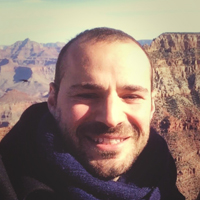
Jonathan Weitz, PhD
Postdoctoral Researcher, Moores Cancer Center, UCSDBio
Dr. Weitz is a NCI Ruth Kirschstein Fellow, with expertise in 3D modeling of human diseases of the gastrointestinal track. During his PhD at the University of Miami (FL), he developed a pancreatic tissue slice platform that allowed for the interrogation of paracrine signaling between multiple cell types including immune cells, vasculature and nerves in the context of Diabetes, which has been published in journals such as Cell Metabolism, Gastroenterology, and Diabetes. In 2020, Dr. Weitz moved to UC San Diego, where he adapted this platform to study cancer biology. Utilizing human tumor resections from multiple tumor types of the pancreas, colon, and appendix, Dr. Weitz has established protocols for extended culture and therapeutic intervention. The findings of his work have led to a successful in-vivo personalized therapy trial led by Dr. Andrew Lowy, for the treatment of mucinous carcinomatosis peritonei.
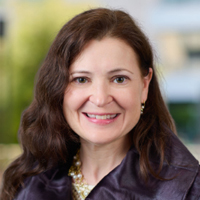
Kristin Yarema, PhD
Chief Executive Officer, Poseida TherapeuticsBio
Dr. Yarema was appointed President and Chief Executive Officer of Poseida and named to the Board of Directors in January 2024. She joined Poseida as President, Cell Therapy in April 2023, bringing extensive biopharmaceutical experience in oncology and allogeneic T cell immunotherapy. Prior to Poseida she served as Chief Commercial Officer at Atara Biotherapeutics, where she led the commercialization of EBVALLO™️, which became the world’s first marketed allogeneic T cell therapy after receiving regulatory approval in Europe for the treatment of a rare lymphoma. Previously Dr. Yarema held a series of U.S. and global commercial leadership roles at Amgen, including most recently Vice President & Therapeutic Area Head for Global Product Strategy & Commercial Innovation in Hematology-Oncology. Earlier in her career, Dr. Yarema worked at Novartis and McKinsey & Company. Dr. Yarema holds a Ph.D. in Chemical Engineering from University of California, Berkeley and is a graduate of Stanford University, where she earned a B.S. in Chemical Engineering and a B.A. in English. She serves on the boards of directors of the Celiac Disease Foundation and the Alliance for Regenerative Medicine.
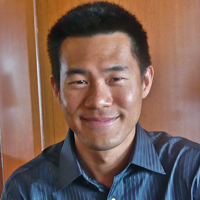
Gene Yeo, PhD, MBA
Professor of Cellular and Molecular Medicine, Founding Member, Institute for Genomic Medicine, Stem Cell Program, Moores Cancer Center, UCSDBio
Gene Yeo PhD MBA is a Professor of Cellular and Molecular Medicine at the University of California San Diego (UCSD), a founding member of the Institute for Genomic Medicine and member of the UCSD Stem Cell Program and Moores Cancer Center. Dr. Yeo has a BSc in Chemical Engineering and a BA in Economics from the University of Illinois, Urbana-Champaign, a Ph.D. in Computational Neuroscience from Massachusetts Institute of Technology and an MBA from the UCSD Rady School of Management.
Dr. Yeo is a computational and experimental scientist who has contributed to RNA biology and therapeutics. His primary research interest is in understanding the importance of RNA processing and the roles that RNA binding proteins (RBPs) play in development and disease. Since inception, Dr. Yeo’s lab has focused on uncovering molecular principles by which RBPs affect gene expression, how RBP- mediated post-transcriptional gene networks contribute to cellular homeostasis in stem cells and the brain, and how mutations in RBPs lead to human developmental and neurodegenerative disease. His lab pioneered computational algorithms and experimental methods in human disease-relevant systems to conduct systematic and large-scale studies. These multidisciplinary methods combine machine learning, biochemistry, molecular biology, genomics, chemistry and materials research. His lab develops methods that are systematic, robust and adoptable, such as enhanced CLIP for the purposes of large-scale mapping of protein-RNA interactions (Van Nostrand et al, Nature Methods, 2016). Gene’s lab is a major contributor of resources to study RBPs that enable hundreds of labs across many areas of bioscience, such as the world’s largest resource of RBP-specific antibodies that facilitated generation and interpretation of the most comprehensive maps of RBP-binding sites to date for hundreds of RBPs (Van Nostrand et al, Nature, 2020). They have also systematically uncovered RBPs that condense into RNA granules during stress and demonstrated strategies to leverage these for therapeutic use in neurodegeneration (Markmiller et al, Cell, 2018; Fang et al, Neuron, 2019; Wheeler et al, Nature Methods, 2020). His lab also demonstrated in vivo RNA targeting with CRISPR/Cas proteins (Nelles et al, Cell, 2016) with proof of concept in repeat expansion disorders (Batra et al, Cell, 2017; Batra et al, Nature Biomedical Engineering, 2020). Work from the Yeo lab has been highlighted in Nature Methods and Nature Reviews Genetics as “Method to Watch” and featured as a top story in Discover magazine in 2016. These efforts have led to clinical programs to develop medicines for RNA-related diseases.
Dr. Yeo has authored more than 200 peer-reviewed publications including invited book chapters and review articles in the areas of neurodegeneration, RNA processing, computational biology and stem cell models; and served as Editor on two books on the biology of RNA binding proteins. Gene is on the Editorial Boards of the journals Cell Reports, Cell Research and eLife, and on the Advisory Board of Review commons. Gene joined UCSD as an Assistant Professor in 2008, was promoted with tenure to Associate Professor in 2014 and to Professor in 2016. Gene was the first Crick-Jacobs Fellow at the Salk Institute (2005-2008) and is a recipient of the Alfred P Sloan Fellowship in recognition of his work in computational molecular biology (2011), Alpha Chi Sigma-Zeta Chapter Krug Lecturer (2016), Singapore National Research Foundation Visiting Investigatorship Award (2017), the inaugural Early Career Award from the International RNA Society (2017), the Blavatnik National Award Finalist (2018 & 2019), San Diego Xconomy Awardee for ‘Big Idea’ (2019) and 2019 recipient of the Highly Cited Researcher in Cross-Field category, recognizing the world’s most influential researchers of the past decade. Gene’s research has been funded by the National Institute of Health, National Science Foundation, California Institute for Regenerative Medicine, TargetALS, ALS Foundation, Department of Defense, Myotonic Dystrophy Association, Myotonic Dystrophy Foundation and Chan-Zuckerberg Initiative. Gene has also been funded and collaborates with biotech and pharmaceutical companies such as Takeda, Genentech and Roche.
Gene is a co-founder of biotech companies which includes Locana, Eclipse Bioinnovations, Enzerna and Proteona. Gene played a critical role in the successful raising of $55M for Locana at series A (2019). Gene serves or had served on the scientific advisory boards of the Allen Institute of Immunology, Locana, Eclipse Bioinnovations, Proteona, Aquinnah, Cell Applications, Nugen (now Tecan), Sardona Therapeutics and Ribometrix. Gene is a senior advisor to Accelerator Life Sciences Partners.
Gene is the founder of the SCREEN (San Diego Covid-19 Research Enterprise Network, 2020) and founding member of the SEARCH (San Diego Epidemiology and Research for Covid Health, 2020) alliances in San Diego. SCREEN has ~1000 scientist members in San Diego focusing on grassroots research coordination and community outreach. SEARCH is focused on epidemiology studies of the prevalence of the virus completing a 12000-person study of viral spread. Gene is on the Return to Work task force in Biocom. Gene is the faculty founder of DASL (Diversity and Science Lecture Series, 2020) providing a voice for scientists to discuss diversity, equity and inclusion challenges and celebrating their scientific achievements. Gene was a Sword of Honor recipient (the highest honor) in Officer Cadet School in 1999 and has served in the Singapore Navy as a Naval officer. Gene has completed 2 full Ironman-distance and multiple half-ironman-, olympic-, sprint-distance triathlons, full marathons and half-marathons, but now spends time rock climbing.

Ida Deichaite, PhD
Director, Industry Relations, Moores Cancer Center, Assistant Professor, Radiation Medicine and Applied Sciences, UC San DiegoBio
Dr. Ida Deichaite is an Assistant Professor in the Department of Radiation Medicine and Applied Sciences. Her research is focused on prostate cancer genomics and head and neck cancer radiogenomics for personalizing radiation therapy to improve outcomes.
In addition, she oversees the translational aspects of oncology at UC San Diego Moores Cancer Center, turning innovation into commercial applications. Her successful partnering with pharma includes overseeing strategy and execution of translational alliances between academia and industry. She is the founder of the Industry/Academia Translational Oncology Symposium, now in its 19th year. This highly visible event was created to support the life sciences ecosystem in San Diego and nationwide.
Dr. Deichaite is widely published in numerous scientific journals. She received her B.A. from Hebrew University, M.Sc. from the Weizmann Institute, Ph.D. from Princeton University, and competed her Research Fellowship at Memorial Sloan Kettering Cancer Center.
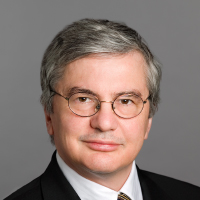
Napoleone Ferrara, MD
Distinguished Professor of Pathology, Adjunct Professor of Ophthalmology and Pharmacology, Senior Deputy Director for Basic Science, Moores Cancer Center, University of California, San DiegoBio
Napoleone Ferrara, M.D., is responsible for discovering Vascular Endothelial Growth Factor (VEGF), a key molecular mediator of new blood vessel formation, and for the development of effective anti-VEGF therapies for cancer and blinding eye disorders such as neovascular age-related macular degeneration. For a long time, it was not clearly understood how normal or cancerous cells elicit the development of a vascular supply. At Genentech, Dr. Ferrara spent nearly 25 years working on the isolation, molecular cloning and biological characterization of VEGF, which resulted in the development of bevacizumab (Avastin), the first anti-angiogenic agent to be approved by the FDA for treatment of metastatic colorectal cancer, in 2004. Subsequently, Avastin and other VEGF blockers have been approved for the treatment of several malignancies, including, kidney, ovarian, brain, and cervical cancers. Currently, Avastin and other anti-VEGF agents are among the most widely used cancer therapeutics and have shown additivity with immunotherapy in several cancer types. His research also led to the development of ranibizumab (Lucentis), which has been FDA-approved for the treatment of multiple intraocular neovascular disorders. Ranibizumab and other VEGF inhibitors are now standard of care for the treatment of multiple intraocular neovascular disorders.
Dr. Ferrara earned his M.D. degree in 1981 from the University of Catania Medical School in Italy. After completing his postdoctoral research at the University of California, San Francisco, he joined Genentech Inc. in 1988. In December 2012, Dr. Ferrara joined the University of California, San Diego as a Distinguished Professor of Pathology, Distinguished Adjunct Professor of Ophthalmology & Pharmacology, and Senior Deputy Director for Basic Science of the Moores Cancer Center. His research continues to focus on the biology of angiogenesis and the identification of its regulators.
Dr. Ferrara has authored over 300 scientific publications, which have been cited over 190,000 times according to Google Scholar. He is also the recipient of numerous scientific awards, including the, the Lefoulon-Delalande-Institut de France Prize, the Passano Award, the General Motors Cancer Research Award, the ASCO Science of Oncology Award, the Pezcoller Foundation-AACR International Award, the Lasker-deBakey Clinical Medical Research Award, the Janssen Award for Biomedical Research, the Breakthrough Prize in Life Sciences, the Antonio Champalimaud Vision Award and the Gairdner Foundation International Award. Dr. Ferrara has been an elected member of the National Academy of Sciences, USA since 2006 and became an elected member of the National Academy of Medicine in 2015.
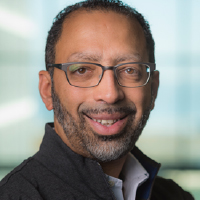
Levi Garraway, MD, PhD
Executive Vice President, Head of Product Development, Chief Medical Officer, Hoffman-La Roche and GenentechBio
Garraway is executive vice president, head of product development, and chief medical officer of Hoffmann-La Roche and Genentech, and an adjunct professor at Stanford University School of Medicine.
Garraway has made crucial contributions to cancer precision medicine, including identifying genes involved in the pathogenesis of melanoma and in resistance to RAF and MEK inhibitors. Using SNP array-based genetic maps paired with gene expression profiles, Garraway identified amplification of the melanocyte master regulator MITF (microphthalmia-associated transcription factor), establishing its role as a melanoma oncogene. He subsequently led large-scale genomic studies of melanoma, prostate cancer, and other tumor types and described mechanisms of resistance to multiple targeted cancer therapies. Moreover, Garraway’s team described novel non-coding mutations in the telomerase gene (TERT) promoter region that generated de novo binding sites for erythroblast transformation-specific (ETS) transcription factors, thereby increasing the expression of TERT in melanoma cells. These TERT mutations have since been described as hallmark genetic events in several cancers, including bladder cancer, glioblastoma, and hepatocellular carcinoma.
Garraway’s research group was the first to describe adaptations of high-throughput genomic technologies to profile human tumors for actionable cancer gene mutations. This work was essential to establishing precision medicine approaches for cancer treatment. He later championed parallel sequencing as a definitive approach to tumor genomic profiling, simultaneously detecting mutations, copy number alterations, and rearrangements across hundreds of driver genes in clinical tumor specimens. This forward-thinking approach of genomics-driven cancer medicine has revolutionized both therapeutic strategies and the clinical trial design based on the genetic composition of patients’ tumors.
Garraway, an AACR member since 2005, was elected a Fellow of the AACR Academy in 2019. He served as a member of the AACR Board of Directors for the 2016-2019 term. He also served as a member of the AACR Council of Scientific Advisors from 2011-2014. Garraway has been celebrated with numerous honors and prizes, including an honorary doctorate from the Feinstein Institutes (2019), Vanderbilt University’s Levi Watkins Jr. Memorial Lectureship (2017), the Outstanding Investigator Award from the National Cancer Institute (2015) and the Society for Melanoma Research (2014), Memorial Sloan Kettering Cancer Center’s Paul Marks Prize for Cancer Research (2013), Ohio State University’s Herbert and Maxine Block Award (2012), Brigham and Women’s Hospital’s Partners in Excellence Award (2011), Massachusetts General Hospital’s Partners in Excellence Award (2003), and merit awards from the National Science Foundation and Merck (1991). In addition to being a Fellow of the AACR Academy, Garraway is a member of the National Academy of Medicine (2020), former president (2015) and member of the American Society for Clinical Investigation, member of the American Association for the Advancement of Science (2010), and member of the Association of American Physicians (2016).
Garraway earned his medical degree from Harvard Medical School and his PhD in biological chemistry and molecular pharmacology from Harvard Graduate School of Arts and Sciences simultaneously in 1999.
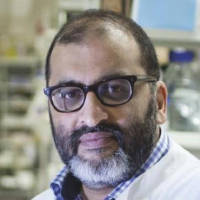
Waseem Qasim, MBBS, PhD
Professor of Cell & Gene Therapy, Institute of Child Health, UCL, Consultant, Paediatric Immunology/BMT, Great Ormond Street Hospital, LondonBio
Waseem Qasim is Professor of Cell & Gene Therapy at the Institute of Child Health, UCL and Consultant in Paediatric Immunology/BMT at Great Ormond Street Hospital, London. He is researching blood and marrow stem cell transplantation and the application of engineered cell therapies, and heads a research group developing genetic therapies, from basic laboratory development to first-in-human trials. His group has a strong focus on lentiviral technology and gene-editing tools including TALENs, CRISPR/Cas9 and Base editing tools for novel therapeutic applications. The research group comprises research assistants, PhD students, post-doctoral researchers and doctors undertaking laboratory based research as part of clinical training fellowships. Periodically, MSc students and vistors form collaborating laboraties join the group for short projects.
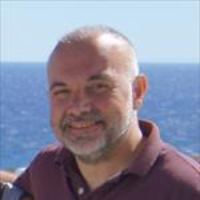
Fotis Asimakopoulos, MB Bchir, PhD
Associate Professor, Moores Cancer Center, UC San DiegoBio
Dr. Fotis Asimakopoulos completed his MD/PhD at the University of Cambridge in the UK, working with Tony Green on mapping 20q deletions associated with pre-leukemias. He then spent two (in his own words, “unforgettable”) years in Jerusalem working with Dina Ben Yehuda as a Golda Meir Fellow on mechanisms underlying CML clonal evolution.
After residency at Brigham and Women’s Hospital in Boston and oncology fellowship at Memorial Sloan-Kettering Cancer Center in New York, he joined Nobel prize laureate Harold Varmus’ group at MSK. In Harold’s lab, he began his work to generate a RAS-driven model for myeloma, a goal that eventually came to fruition several years later, with the publication of the VQ model (in collaboration with Jing Zhang’s group at UW-Madison as well as Marta Chesi and Leif Bergsagel at Mayo).
In 2010, he became an Assistant Professor and later a tenured Associate Professor at UW-Madison. The Asimakopoulos lab moved to UCSD and sunny San Diego in 2019.
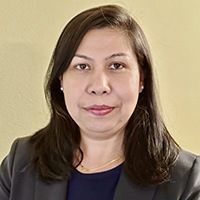
Shweta Joshi, PhD
Assistant Professor, Department of Pediatrics, Moores Cancer Center, UC San DiegoBio
Shweta Joshi is an Assistant Professor of Pediatrics at the Moores Cancer Center, University of California, San Diego. Dr. Joshi received her Ph.D. in Biochemistry from Central Drug Research Institute, Lucknow, India, and completed her postdoctoral training at the University of California, San Diego. Her research has focused on understanding the cellular and molecular mechanisms that regulate the recruitment and activation of immunosuppressive myeloid cells in solid tumors and the subsequent regulation those cells exert on the evolving tumor microenvironment. Dr. Joshi has investigated novel, innovative approaches to convert pro-tumor macrophages into anti-tumor macrophages and has also discovered novel targeted agents that have been translated into early-phase clinical trials for the treatment of cancer patients. Her lab has identified a novel macrophage autonomous pathway involving Rac2 and Syk downstream of the provisional integrins α4β1 that controls immunosuppressive macrophage polarization in tumor growth and metastasis. Her current research has demonstrated that Syk inhibitors are valuable therapeutic agents for solid tumor therapy.

Dan Kaufman, MD, PhD
Professor of Medicine, Division of Regenerative Medicine, Director of Cell Therapy, UC San DiegoBio
Dr. Kaufman is a Professor in Department of Medicine, Division of Regenerative Medicine and Director of the Cell Therapy program at the University of California-San Diego (UCSD).
Following undergraduate studies at Stanford University, he completed a combined MD/PhD program at Mayo Clinic and a clinical residency and fellowship in internal medicine and hematology at the University of Wisconsin-Madison.
Dr. Kaufman also provides clinical care for patients with hematological malignancies, with special interest in blood and marrow transplantation (BMT) and immune therapies.
The Kaufman laboratory uses human pluripotent stem cells to understand the development of blood cells. The aim is to use human embryonic stem cells (hESCs) and human induced pluripotent stem cells (iPSCs) as a resource to produce blood and immune cells (mainly natural killer cells) for new clinical applications for treatment of relapsed/refractory cancers — both hematologic malignancies and solid tumors. The lab is also working on production of blood cells (monocytes and macrophages) that can be used for tissue repair and regeneration.
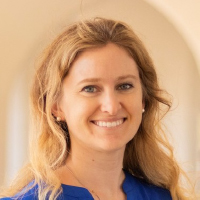
Alexis Komor, PhD
Assistant Professor, Department of Chemistry and Biochemistry, UC San DiegoBio
Alexis received her B. S. degree in chemistry from the University of California, Berkeley in December of 2008. She then joined the lab of Jacqueline K. Barton at the California Institute of Technology for her doctoral studies. While at Caltech, she worked as an NSF Graduate Research Fellow on the design, synthesis, and study of DNA mismatch-binding metal complexes and received her Ph.D. in 2014. She pursued postdoctoral work as a Ruth L. Kirschstein NIH Postdoctoral Fellow in the laboratory of David R. Liu, where she developed base editing, a new approach to genome editing that enables the direct, irreversible chemical conversion of one target DNA base into another in a programmable manner, without requiring double-stranded DNA backbone cleavage. Alexis joined the Department of Chemistry and Biochemistry at the University of California at San Diego in 2017, where her lab develops and applies new precision genome editing techniques to the functional genomics field. Alexis’s contributions in teaching, mentoring, and research have been recognized through many awards, including a Young Investigator Award by the International Society for Transgenic Technologies, the Cottrell Scholar Award by the Research Corporation for Science Advancement, the inaugural Rosalind Franklin Medal by the Rosalind Franklin Society and the Genome Writers Guild, an Outstanding Mentor Award by the UCSD Undergraduate Research Hub, the “Talented 12” recognition by C&EN News, an NSF Faculty Early Career Development (CAREER) award, an NIH early stage investigator Maximizing Investigators’ Research Award (MIRA), and a “40 under 40” recognition in healthcare by Fortune Magazine.
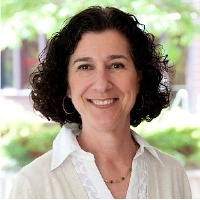
Jill Mesirov, PhD
Associate Vice Chancellor for Computational Health Sciences, Professor, Department of Medicine, co-Lead Structural and Functional Genomics, Moores Cancer Center, UC San DiegoBio
As associate vice chancellor for computational health sciences, Jill Mesirov, PhD, is responsible for the overarching strategy for data science and research computing for health sciences at UC San Diego School of Medicine. She is also a professor in the Department of Medicine.
Dr. Mesirov is a computational scientist who has spent many years working in the area of high-performance computing on problems that arise in science, engineering, and business applications. Her research focuses on cancer genomics applying machine-learning methods to functional data derived from patient tumors. The lab analyzes this molecular data to determine the underlying biological mechanisms of specific tumor subtypes, to stratify patients according to their relative risks of relapse, and to identify candidate compounds for new treatments.
In addition, Dr. Mesirov is committed to the development of practical, accessible software tools to bring these methods to the general biomedical research community. Her tools support almost 500,000 users worldwide.
Before joining UC San Diego in 2015, Dr. Mesirov was associate director and chief informatics officer at the Broad Institute of MIT and Harvard, where she directed the Computational Biology and Bioinformatics Program. She previously served as manager of computational biology and bioinformatics in the Healthcare/Pharmaceutical Solutions Organization, director of research at Thinking Machines Corporation, and has also held positions in the mathematics department at the University of California, Berkeley and served as associate executive director of the American Mathematical Society.
Dr. Mesirov received her BA in mathematics from the University of Pennsylvania and earned her MA and PhD in mathematics from Brandeis University.
She is a fellow of the American Association for the Advancement of Science (AAAS), the American Mathematical Society (AMS), the Association for Women in Mathematics, and the International Society for Computational Biology (ISCB).

Judith Varner, PhD
Professor of Medicine and Pathology, Moores Cancer Center, UC San DiegoBio
Judy Varner, Ph.D., is Professor in the Departments of Pathology and Medicine at the University of California, San Diego, Director of Faculty Mentoring for the Department of Pathology and co-Leader of the Solid Tumor Therapeutics program in the Moores UCSD Cancer Center. She joined the Department of Medicine in 1997 and the Department of Pathology in 2012. Dr. Varner received her undergraduate degree in Chemistry from Duke University, where she was an A.B. Duke and National Merit Scholar, and received her Ph.D. in Biochemistry from the University of Basel, Switzerland, where she was a Fulbright Fellow. Prior to coming to UCSD, she was a postdoctoral fellow in the Department of Pharmacology at the University of North Carolina at Chapel Hill where she studied integrin signaling in cancer. As a member of Moores Cancer Center, her research has focused on mechanisms regulating the tumor microenvironment and inflammation in cancer. Her work, which appears in journals that include Cancer Cell, Nature, Nature Communications and Cancer Discovery, has identified novel mechanisms by which macrophages promote tumor growth and has developed new approaches to treat cancer patients by targeting tumor macrophage signal transduction, with a focus on inhibition of PI3Kinase gamma. The novel therapeutic eganelisib (IPI-549) was developed by Infinity Pharmaceuticals in conjunction with the Varner lab and is currently in testing in five Phase II clinical trials as an immune/oncology agent for cancer therapy. Dr. Varner is a recipient of the V Foundation Award for Translational Research, the AACR-Landon Foundation Innovator Award for International Collaboration and the Lustgarten Foundation Innovator Award for Pancreatic Cancer Research for her work on immune oncology therapeutics. Dr. Varner is active in the American Association for Cancer Research and the Society for the Immunotherapy of Cancer.
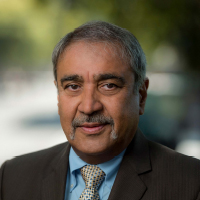
Pradeep K. Khosla, PhD
Chancellor, University of California San DiegoBio
Pradeep K. Khosla became UC San Diego’s eighth Chancellor on August 1, 2012. As UC San Diego’s chief executive officer, he leads a campus with more than 43,000 students; seven undergraduate colleges; and 12 academic, graduate and professional schools. UC San Diego is also home to the prestigious Scripps Institution of Oceanography and the UC San Diego Health System. With annual revenues of $6.9 billion in fiscal year 2022, UC San Diego is an academic and research powerhouse, with faculty, researchers and staff attracting more than $1.64 billion in sponsored research in fiscal year 2022. UC San Diego is recognized as one of the top 15 research universities in the world and is the largest civilian employer based in San Diego County.
Khosla initiated and led UC San Diego’s first-ever Strategic Plan and the ambitious 10-year, $2 billion Campaign for UC San Diego. The Campaign raised $3.05 billion, exceeding its original goal by more than $1 billion, and making UC San Diego the youngest institution ever to complete a multi-billion-dollar fundraising campaign. The Strategic Plan and Campaign for UC San Diego have worked in concert to transformed the university physically, culturally and intellectually. With these efforts, Khosla has significantly expanded college access and affordability for underserved populations, initiated interdisciplinary research initiatives to foster collaboration and solve societal challenges, and strengthened university and community relationships and partnerships. The campus is currently in the midst of a $6 billion-construction plan aimed at expanding classroom and research space and doubling the number of on-campus housing units and redeveloping the Hillcrest Medical Campus.
An internationally renowned researcher and educator with research interests in Robotics, AI, and Cybersecurity, Khosla previously served as Dean of the College of Engineering and Philip and Marsha Dowd University Professor at Carnegie Mellon University. He spent the majority of his career at Carnegie Mellon, rising through the ranks from his first position as Assistant Professor in 1986 to his appointment as Dean and University Professor in 2004. From 1994 to 1996, he also served as a Defense Advanced Research Projects Agency (DARPA) Program Manager in the Software and Intelligent Systems Technology Office, Defense Sciences Office and Tactical Technology Office, where he managed advanced research and development programs in robotics and AI.
Khosla is an elected member of the American Academy of Arts and Sciences, the National Academy of Engineering, the National Academy of Inventors, the Indian National Academy of Engineering, and the Indian Academy of Science. He is a Fellow of the Institute of Electrical and Electronics Engineers, the American Society of Mechanical Engineers, the American Association for Advancement of Science, and the American Association of Artificial Intelligence.
Khosla is also the recipient of numerous awards for his leadership, teaching, and research, including the 2012 Light of India Award, a Lifetime Achievement Award from the American Society of Mechanical Engineers, W. Wallace McDowell award from the IEEE, the George Westinghouse Award for contributions to improve engineering teaching, and the Cyber Education Champion award. Khosla serves and has served as a member of advisory boards and boards of directors for non-profits, high tech start-ups, and public and private companies. He currently serves as an Independent Director of Tata Consultancy Services (TCS - traded on Bombay Stock Exchange). He is also a member of the Audit Committee and Chairs the Stakeholders Relation Committee. He also serves as the Chair of the Board of Internet2 LLC.
Khosla has served on the advisory board of several Government organizations and Universities. His current service includes serving on the Board of Governors of Academy for Research and Innovation in India (he was appointed to this by the Prime Minister of India in Feb 2020), member of the Board of Governors of SRM University – Amravati, India, Director of Reliance Foundation of Education and Research, and member of the advisory board of Semicon India.
In 2012, he was named one of the 50 most influential Indian-Americans by Silicon India, and in 2022 he was named in Apolitical’s 100 most influential academics. He is the recipient of honorary Doctor of Science degrees from SRM University (Chennai, India) and his alma mater IIT Kharagpur (India). At UC San Diego, he has appointments as Distinguished Professor in the Departments of Electrical and Computer Engineering, Computer Science and Engineering, and the Halicioğlu Data Science Institute.

Joseph Califano, MD
Director & Physician in Chief, Moores Cancer Center, Director, Hanna and Mark Gleiberman Head and Neck Cancer Center, Co-Leader, Structural and Functional Genomics, Moores Cancer Center, Professor and Iris and Matthew Strauss Chancellor’s Endowed Chair in Head and Neck Surgery, Department of Otolaryngology-Head and Neck Surgery, UC San DiegoBio
Joseph A. Califano III, MD, has been named director of Moores Cancer Center at UC San Diego Health as of November 16, 2022. Dr. Califano is a board-certified otolaryngologist. He is an internationally recognized head and neck surgeon who specializes in tumors of the oral cavity (mouth), salivary glands, pharynx (throat), larynx (voice box), sinuses, thyroid, and skull base. Dr. Califano has expertise in minimally invasive surgical techniques, including endoscopic laser and robotic surgery, to help best preserve function and appearance in his patients. He has an interest in HPV-related cancers of the throat, as well as premalignant conditions of the upper aero digestive tract.
His other areas of investigation include integrative network-based molecular analysis of head and neck tumors; detection of recurrent and occult primary cancer within blood and saliva using molecular biologic techniques; and defining the underlying biology of head and neck cancers.
A frequent speaker at national and international meetings, Dr. Califano has coauthored numerous textbooks and book chapters and over 230 peer-reviewed articles related to both clinical and scientific aspects of cancer. His work has appeared in Nature, Oral Oncology and Clinical Cancer Research, among others. He reviews and serves on the editorial board for a variety of medical journals, including Oral Oncology, the most respected specialty journal in head and neck cancer.
In his free time, Dr. Califano enjoys rock climbing, and is learning how to surf. He and his wife, Beth, have two children.

Ida Deichaite, PhD
Director, Industry Relations, Moores Cancer Center, Assistant Adjunct Professor, Radiation Medicine and Applied Sciences, UC San DiegoBio
Dr. Ida Deichaite is an Assistant Adjunct Professor in the Department of Radiation Medicine and Applied Sciences. Her research is focused on prostate cancer genomics and head and neck cancer radiogenomics for personalizing radiation therapy to improve outcomes.
In addition, she oversees the translational aspects of oncology at UC San Diego Moores Cancer Center, turning innovation into commercial applications. Her successful partnering with pharma includes overseeing strategy and execution of translational alliances between academia and industry. She is the founder of the Industry/Academia Translational Oncology Symposium, now in its 19th year. This highly visible event was created to support the life sciences ecosystem in San Diego and nationwide.
Dr. Deichaite is widely published in numerous scientific journals. She received her B.A. from Hebrew University, M.Sc. from the Weizmann Institute, Ph.D. from Princeton University, and competed her Research Fellowship at Memorial Sloan Kettering Cancer Center.
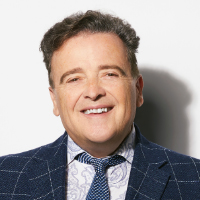
Luc Berthiaume, PhD
CSO, Pacylex PharmaceuticalsBio
Dr. Luc Berthiaume is a Professor of Cell Biology at the University of Alberta, with 28 years of experience studying protein fatty acylation. He has been leading a productive research laboratory at the University of Alberta for 25 years, where he made the important discovery of a potential link between suppression of NMT2, one of two human myristoylation enzymes, and a new highly selective synthetically lethal treatment of hematological cancers. To facilitate these studies, his laboratory made major improvements in detection and identification of fatty acylated proteins using chemical biology, allowing straightforward study of protein fatty acylation in cells in vitro and even in vivo. The research efforts Dr. Berthiaume has been leading on the implications of myristoylation in cancer and apoptosis have led to the discovery that blood cancer cells are extremely vulnerable to myristoylation inhibitors.
Dr. Berthiaume co-founded Pacylex Pharmaceuticals, Inc., (Pacylex) in 2012 to translate this discovery into a new potential therapy that could benefit lymphoma and leukemia patients. Additionally, in 1998 he founded Eusera, an antibody manufacturing company in Edmonton, Alberta (Canada), which produces and markets many commercially successful antibodies, including several against GFP. Eusera generated a huge proportion of the initial funds required to develop PCLX-001 and move it to the clinical trial status.
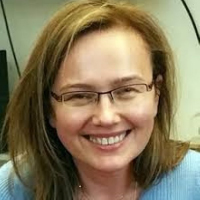
Jadwiga Bienkowska, PhD
Senior Director, Head of Computational Biology Oncology R&D, PfizerBio
Dr. Jadwiga Bienkowska is a Sr. Director and Head of Computational Biology at Pfizer, Oncology Research and Development (ORD). Dr. Bienkowska has over 20 years of experience working in Pharma and Biotech. Over her career she has built and led teams of biologists, data scientists and engineers applying at-scale Computation, Machine Learning and AI to drug development problems.
At ORD Dr. Bienkowska focuses on the mission to develop breakthrough therapies for unmet needs of Cancer patients. Dr. Bienkowska’s team works with biologists and clinicians on decoding complex biological data into interpretable models of mechanisms driving cancer progression and resistance to treatment. Insights generated by these data models help accelerate drug development through new target discovery, MOA studies, patient, and biomarker selection strategies for Phase I trials. The team's investigations of PhIII and RWE clinico-genomics data underpin discoveries of novel targets for cancers resistant to Immune CheckPoint Inhibitors, CDK4/6 inhibitors, and other SOC therapies.
Prior to joining Pfizer in 2014 Dr. Bienkowska led a computational biology group at BiogenIdec and EMD Serono focused on uncovering molecular drivers and new therapies for Cancer and Immune and Neurological diseases. Dr. Bienkowska holds a PhD in Physics from the University of Chicago and completed postdoctoral training at Harvard Medical School and Dana Farber Cancer Institute. Dr. Bienkowska has also served as a Visiting Scientist at CSAIL, MIT and Adjunct Professor at Boston University and UCSD.

Ezra Cohen, MD, FRCPSC, FASCO
Chief, Division of Hematology/Oncology, Department of Medicine, UC San Diego, Co-Director, San Diego Center for Precision Immunotherapy, Associate Director for Clinical Sciences, UC San Diego Moores Cancer Center, Co-Leader, Solid Tumor Therapeutics Program, Co-Director, Hanna and Mark Glieberman Head and Neck Cancer CenterBio
Ezra Cohen, MD, is Chief of the Division of Hematology‐Oncology, and co-Director of the San Diego Center for Precision Immunotherapy and an internationally renowned translational researcher. A physician-scientist, Dr. Cohen led an independently funded laboratory interested in mechanisms of action of novel therapeutics. He has made major contributions to targeted therapy. His recent National Institutes of Health-funded work in the study of epidermal growth factor receptor inhibitors in head and neck cancer has contributed to the understanding of the biology of this critical signaling network, integration of these agents into standard of care, and definition of mechanisms to overcome resistance. He recently served as chair of the NCI Head and Neck Cancer Steering Committee that oversees NCI-funded clinical research (including all NCI Cooperative Group trials) in this disease.
Dr. Cohen is Associate Director for Clinical Science and Co-Director Hanna and Mark Gleiberman Head and Neck Cancer Center. He brings his expertise and preeminent reputation in head and neck cancer research and patient care to solid tumor therapeutics. Among other roles, he is Co-Director, IEM Center for Engineering in Cancer and serves as a member of the Cancer Council, and the Cancer Center’s Executive Committee.
Dr. Cohen recently served as editor-in-chief of Oral Oncology, the highest impact specialty journal in head and neck cancer and has recently chaired two Multidisciplinary Head and Neck Cancer Symposia—the largest international meeting of its kind—sponsored by the American Society for Radiation Oncology, the American Society of Clinical Oncology and the American Head and Neck Society. He has been the principal investigator on multiple studies of novel agents in head and neck cancer and other solid tumors in all phases of development including chemoprevention, phase I, II, and III trials. Dr. Cohen has a record of distinguished cancer research with over 200 peer-reviewed manuscripts and an h-index of 76 and has presented his research at national and international meetings. In addition, he has served as a grant reviewer for the NIH, American Association for Cancer Research, American Society of Clinical Oncology, and the Ontario Institute for Cancer Research.
Dr. Cohen completed residencies in Family Medicine at the University of Toronto and in Internal Medicine at Albert Einstein College of Medicine. He completed a Hematology/Oncology fellowship at the University of Chicago where he was named chief fellow. Prior to his arrival in San Diego, Dr. Cohen was Co-Director of the Head and Neck Cancer Program, Associate Director for Education and Program Director for the Hematology/Oncology Fellowship at the University of Chicago Comprehensive Cancer Center. A dedicated educator, Dr. Cohen also mentored and developed young faculty in his program.
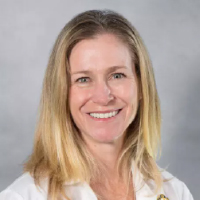
Caitlin Costello, MD
Associate Clinical Professor of Medicine, Division of Blood and Marrow Transplantation, Moores Cancer Center, UC San DiegoBio
As a member of the Division of Blood and Marrow Transplantation, Dr. Costello is dedicated to providing excellent care for patients with a variety of hematologic malignancies, with a specific focus in lymphoproliferative disorders and bone marrow transplantation. Dr. Caitlin Costello’s research interests focus particularly on the refinement of the management and treatment of multiple myeloma. She is dedicated to conducting clinical trials with novel agents and treatment strategies to expand the therapeutic options for patients with multiple myeloma. As we enter the age of personalized medicine, Dr. Caitlin Costello is principally interested in developing treatment strategies that are specific to the most finite genetic and molecular details of each individual patient’s disease.
Dr. Costello completed a fellowship in hematology-oncology with a focus in bone marrow transplantation at UC San Diego School of Medicine. She completed a residency in internal medicine at Weill Cornell Medical College, New York-Presbyterian Hospital. Dr. Costello earned her medical degree at Tufts University School of Medicine in Boston.
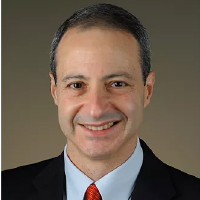
J. Silvio Gutkind, PhD
Distinguished Professor and Chair, Department of Pharmacology, School of Medicine, Associate Director of Basic Science, Moores Cancer Center, UC San DiegoBio
Dr. Gutkind is a Distinguished Professor and Chair, Department of Pharmacology, School of Medicine, and Associate Director for Basic Science at the Moores Cancer Center, University of California San Diego. He received his Ph.D. in pharmacy and biochemistry from the University of Buenos Aires, Argentina. After his post-doctoral training at the NCI, he served as the Chief of the Oral and Pharyngeal Cancer Branch, NIDCR, NIH, since 1998 until his recruitment to UCSD in 2015.
His research team is exploiting the emerging information on dysregulated signaling circuitries and individual genomic and molecular alterations to develop new precision cancer therapies, and to identify novel multimodal strategies to enhance the response to cancer immunotherapies. He pioneered the study of GPCRs and G proteins in cancer, and revealed the persistent activation of the PI3K-AKT-mTOR pathway in oral cancer. Dr. Gutkind has led a multi institutional clinical trial establishing the benefits of treating oral cancer patients with mTOR inhibitors, and he is co-leading a new mTOR-targeting chemoprevention trial in oral premalignancy. His laboratory has launched a new effort exploring multimodal precision immunotherapy approaches for cancer prevention and treatment.
His honors include the NIH Merit Award, the Elliot Osserman Award from the Israel Cancer Research Foundation, the Pharmaceutical Research and Manufacturers of America (PhRMA) Award, and the election as Fellow of ASBMB and ASPET. He was elected in 2019 to the National Academy of Medicine, recognizing his team’s translational efforts in the area of cancer signaling. He has published over 500 research articles in some of the most prestigious journals. He has mentored many junior investigators, who are now playing leadership roles in multiple institutions in the United States and abroad.
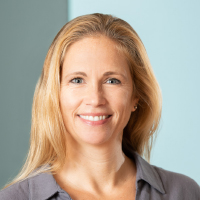
Jill Hallin
Director of Pharmacology, Mirati TherapeuticsBio
Jill Hallin is Director of Pharmacology with Mirati Therapeutics, a biotechnology company whose mission is to discover, design and deliver breakthrough therapies to transform the lives of patients with cancer and their loved ones. Mirati is relentlessly focused on bringing forward therapies that address areas of high unmet need, including lung cancer, and advancing a pipeline of novel therapeutics targeting the genetic and immunological drivers of cancer. Jill obtained her Bachelor of Science in Biology from Portland State University while she developed her strong foundation in cancer biology as a research associate in various Oregon Health Sciences University laboratories.
As a biology group leader at Mirati since 2015, Jill has led the preclinical pharmacology, mechanism of action and translational biology strategy for MRTX849 (adagrasib), a selective irreversible KRAS G12C inhibitor recently approved for second line treatment of KRAS G12C NSCLC. In addition, Jill has driven the preclinical biology efforts to identify MRTX1133, a selective KRAS G12D inhibitor, which was granted Investigational New Drug clearance in January 2023.
Prior to Mirati, Jill worked for 15 years as a research scientist in the Pfizer Oncology Research Unit, and was involved in preclinical target identification, validation of epigenetic targets, and pharmacology of several programs including Chk1 (PF-00477736) and PI3K/mTOR (PF-04691502).

Fairooz Kabbinavar, MD, FACP
Chief Medical Officer, Cardiff OncologyBio
Fairooz Kabbinavar, MD, FACP, serves as Chief Medical Officer at Cardiff Oncology, overseeing the clinical development program for the Company's investigational drug onvansertib. Dr. Kabbinavar joins Cardiff Oncology with more than 30 years of experience that bridges both the academic and biotech/pharmaceutical sectors. He spent 25 years as an academic oncologist at the University of California, Los Angeles (UCLA), holding appointments including Full Professor of Medicine and urologic oncology with an Endowed Chair for cancer research. He joined the biotech industry as the principal medical director in Genentech's immuno-oncology program, where he led the clinical development of atezolizumab (TECENTRIQ®) in extensive stage small cell lung cancer and oversaw the filing of the supplemental biologics license application that led to the drug's FDA approval. Most recently, Dr. Kabbinavar was the global head of research and development at Huyabio International. Prior to joining Huyabio, he served as senior vice president (SVP) of clinical research and development at Puma Biotechnology, and CMO and SVP of clinical development at Tocagen, Inc.
As both a clinical oncologist and biopharma executive, Dr. Kabbinavar brings deep knowledge of colorectal cancer, as well as other solid tumor cancers. While at UCLA, he participated in over 125 oncology clinical trials as PI, and served as lead investigator for two practice-changing trials of bevacizumab (Avastin®) combinations leading to approval of bevacizumab in mCRC. He also led a phase III study to FDA approval of Atezolizumab (anti-PDL1 Ab/Check Point Inhibitor) in combination with chemotherapy in extensive stage SCLC. He has experience in development of Immuno-Oncology drugs, gene therapy, intra-tumoral injection of drugs and a variety of other targeted therapy molecules.
Dr. Kabbinavar has published over 100 articles in peer-reviewed journals such as the New England Journal of Medicine (senior author) and Journal of Clinical Oncology (lead author). Dr. Kabbinavar holds BSc, MBBS and MD degrees from Nagpur University, India, and completed multiple fellowships in UCLA's Division of Hematology/Oncology, as well as an internship and residency at Harvard University's Beth Israel Deaconess Medical Center in Boston.
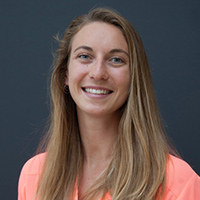
Nadja Kern, PhD
Scientist, InhibrxBio
Nadja Kern, Ph.D., is a scientist within the biotherapeutics team at Inhibrx, Inc., a San Diego-based, clinical-stage biotechnology company focused on developing novel therapeutics by leveraging a proprietary single-domain antibody platform. An interdisciplinary immune cell biologist with expertise in immune cell signaling, she is a key contributor to the development of preclinical drug discovery programs at Inhibrx. Prior to joining Inhibrx, she received her Ph.D. from the University of California San Francisco, where she co-authored numerous studies on the activation mechanisms of macrophages and T cells.
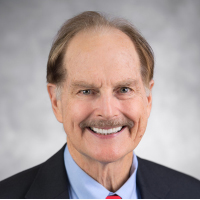
Thomas Kipps, MD, PhD
Distinguished Professor of Medicine, Evelyn and Edwin Tasch Chair in Cancer Research, Director of the Center for Novel Therapeutics, Deputy Director of Research Operations, Co-Director, Hematological Malignancies Program, Moores Cancer Center, UC San DiegoBio
Thomas Kipps, MD, PhD, is Distinguished Professor of Medicine, Evelyn and Edwin Tasch Chair in Cancer Research, Director of the Center for Novel Therapeutics, and Deputy Director of Research Operations at the UC San Diego’s Moores Cancer Center. Dr. Kipps is a two-time awardee of a Specialized Center of Research (SCOR) in Leukemia grant from the Leukemia and Lymphoma Society, a two-time awardee of the NIH MERIT Award, and principal investigator of the CLL Research Consortium (CRC), which directed inter-institutional research among the leading investigators in CLL from across the country and abroad. Dr. Kipps is a core member of the international workshop on CLL (iwCLL) and an awardee of the Rai/Binet medal for outstanding contributions to the field of leukemia research. Dr. Kipps is the current Chair of the NCI Developmental Therapeutics Study Section and Associate Editor for Leukemia. He has received continuous peer-reviewed, extra-mural funding for research throughout his career and maintained a high level of research productivity.
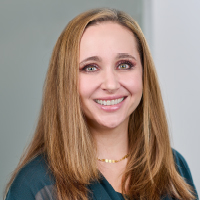
Mollie Leoni, MD
Senior Vice President, Clinical Development, Kura OncologyBio
At Kura Oncology, Dr. Leoni leads Clinical Development and is a member of the Senior Leadership Team, helping to guide strategy from first in human studies through to registration. She also serves as the Clinical lead for ziftomenib, a menin inhibitor being developed for the treatment of acute myeloid leukemia that is advancing into a registrational program.
Prior to joining Kura oncology, Dr. Leoni held a similar role with Kyowa Kirin, where she was responsible for the global approval of Poteligeo, a treatment for relapsed/refractory Mycosis Fungoides and Sezary Syndrome.
Dr. Leoni obtained her undergraduate and medical degrees from the University of Pennsylvania, where she also trained extensively in bioethics before entering postgraduate training at Thomas Jefferson University.
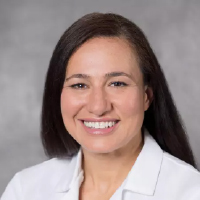
Rana McKay, MD
Associate Professor of Medicine and Urology, Associate Director, Translational Science, Co-Lead, Genitourinary Oncology Program, Moores Cancer Center, UC San DiegoBio
Rana R. McKay, MD is an Associate Professor of Medicine and Urology at the University of California San Diego, Associate Director of Translational Sciences, and Co-Leader of the Genitourinary Oncology Program at the Moores Cancer Center. She is a medical oncologist who specializes in treating people with urogenital cancers. Her research interests include advanced therapeutics, precision medicine, and biomarker development. Her work has appeared in peer-reviewed publications such as The New England Journal of Medicine, Nature, Lancet, Journal of Clinical Oncology, Clinical Cancer Research, Cancer, among others. She is a member of the NCI Renal Task Force, NRG RCC Cadre Leader, and Alliance Advanced Prostate Cancer, Cadre Leader, and member of the NCCN Prostate Cancer Guidelines panel. Dr. McKay earned her medical degree at the University of Florida College of Medicine before completing her residency at Johns Hopkins Hospital. She completed a fellowship in Oncology/Hematology at the Dana-Farber Cancer Institute.
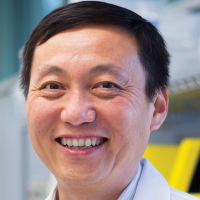
Bing Ren, PhD
Professor of Cellular and Molecular Medicine, Director, Center for Epigenomics, UC San Diego, Member, Ludwig Institute for Cancer ResearchBio
Bing Ren, PhD, is currently a Member of the Ludwig Institute for Cancer Research and Professor of Cellular and Molecular Medicine at the University of California, San Diego (UCSD) School of Medicine. He is also Director of the UCSD Center for Epigenomics.
Dr. Ren is a pioneer of epigenetic technology development and a leader in the study of enhancers and insulators in the human genome. His pioneering research in gene regulation and epigenomics has contributed seminally to the knowledge of transcriptional regulatory elements in the human genome, the 3D chromatin architecture, and the role of noncoding DNA variants in human diseases. Dr. Ren has invented numerous tools that have revolutionized the research of epigenetics and gene regulation, including a suite of single cell epigenomic assays, such as single nucleus ATAC-seq, single cell Methyl-HiC, Paired-Seq, and Paired-Tag, that have enabled the analysis of chromatin accessibility, DNA methylome, chromosomal conformation, and histone modification, either individually or in combination with RNA-seq, in single cells and at unprecedented scale, thereby setting the stage for comprehensive epigenome mapping in development and disease process.
Dr. Ren is a recipient of the Chen Award for Distinguished Academic Achievement in Human Genetic and Genomic Research, and an elected fellow of the American Association for the Advancement of Science.
Dr. Ren obtained his Ph.D. in Biochemistry from Harvard University in 1998, where he studied with Tom Maniatis. He joined the faculty at LICR and UCSD in 2001, after completing postdoctoral training with Richard Young at the Whitehead Institute.
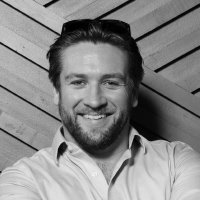
David Rodgers, PhD
Senior Director of Immunotherapy, Shoreline BiosciencesBio
Dr. David T. Rodgers is an accomplished scientist and Senior Director of Immunotherapy at Shoreline Biosciences. Originally from the UK, David obtained his Bachelor's degree in Microbiology and Immunology from Newcastle University and went on to pursue a PhD at the University of Glasgow, where he focused on small molecule drug development for autoimmunity. Following his doctoral studies, David joined the California Institute for Biomedical Research (Calibr; now part of The Scripps Research Institute) in 2014 as a postdoctoral fellow, where he developed antibody and cell therapy products, most notably a switchable CAR-T cell therapy that is now in phase 1 clinical trials.
Prior to joining Shoreline, David established an Infectious Disease & Immunology research group at Regulus Therapeutics that developed microRNA modulating drug candidates for a variety of disease indications. He has authored multiple patents and published numerous research papers in top-tier scientific journals. At Shoreline, David was one of the first research leaders to join the company. His innovative work in developing iPSC derived macrophage and NK cell therapies has the potential to transform cancer treatment globally. He is passionate about immunotherapy and always happy to chat.
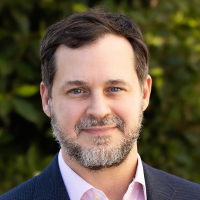
Devon J. Shedlock, PhD
Chief Scientific Officer, Cell Therapy, Poseida TherapeuticsBio
Dr. Shedlock is Poseida’s Chief Scientific Officer, Cell Therapy, after joining as its first employee in 2015 and most recently serving as Senior Vice President of Research & Development. He is a key scientific contributor in the application of the Company’s proprietary gene engineering platform technologies to develop novel cell therapy programs. Before joining Poseida, he held positions as an adjunct assistant professor of pathology and laboratory medicine at the Perelman School of Medicine, and associate director of the T-Cell Engineering Laboratory, both at the University of Pennsylvania. Dr. Shedlock received his Ph.D. in cell & molecular biology from the University of Pennsylvania.
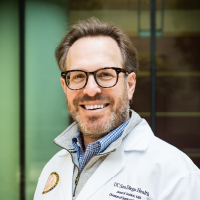
Jason Sicklick, MD, FACS
Professor of Surgery, Division of Surgical Oncology, Adjunct Professor, Department of Pharmacology, Executive Vice Chair of Research, Department of Surgery, Leader, Sarcoma Disease Team, Moores Cancer Center, UC San DiegoBio
Jason Sicklick, MD, is an internationally recognized surgical oncologist who specializes in treating gastrointestinal stromal tumors (GIST), abdominal/retroperitoneal sarcomas, and liver tumors.
Dr. Sicklick is a champion of innovation and collaboration to improve outcomes for cancer patients. He is Leader of the Sarcoma Disease Team at UC San Diego Health and a member of the National Comprehensive Cancer Network Soft-Tissue Sarcoma Committee and GIST Subcommittee, which develops best practices for treating these rare and often challenging-to-treat cancers.
A professor of surgery and pharmacology at UC San Diego School of Medicine, Dr. Sicklick conducts clinical research to improve our understanding of complex cancers such as GIST and retroperitoneal sarcomas, as well as enhance precision medicine approaches for treating metastatic cancers. His laboratory focuses on the molecular mechanisms of GIST development and drug resistance in advanced GIST.
Dr. Sicklick, who joined UC San Diego Health in 2010, has co-authored over 150 peer-reviewed articles. His research findings have appeared in prestigious journals such as Nature Medicine, Nature, Gastroenterology, Clinical Cancer Research, Oncogene, Annals of Surgery, and JAMA Surgery. He is on the editorial boards of Cancer and Journal of Gastrointestinal Surgery.
Dr. Sicklick has received many awards and honors for his contributions to advancing GIST treatments. In 2021, he earned a Rare Impact Award from the National Organization for Rare Disorders (NORD). He is also a 2018 recipient of the RARE Champion of Hope in Medical Care and Treatment Award from the Global Genes Allies in Rare Disease, the largest global advocacy organization for those fighting rare, genetic diseases. In 2016, he was named the GIST Clinician of the Year by The Life Raft Group, the largest GIST patient advocacy group in the world. He is an elected member of the American Surgical Association, the nation's oldest and most prestigious honorary surgical society.
Dr. Sicklick completed a surgical oncology fellowship at Memorial Sloan Kettering Cancer Center. He completed general surgery residency training at The Johns Hopkins Hospital and translational research training at Duke University Medical Center. He earned his medical degree from David Geffen School of Medicine at UCLA. He is board certified in general surgery and a fellow of the American College of Surgeons (FACS).

Steve Worland, PhD
President and CEO, eFFECTOR TherapeuticsBio
Dr. Steve Worland is currently President and CEO and a director of eFFECTOR Therapeutics (NASDAQ:EFTR), which he co-founded in 2012. Previously, Dr. Worland was CEO of Anadys Pharmaceuticals, a biopharmaceutical company which discovered and developed treatments for hepatitis C and cancer, until its acquisition by Roche in 2011. Prior to being named CEO at Anadys, he was CSO and President, Pharmaceuticals. Dr. Worland began his career at Agouron Pharmaceuticals and remained with the company through its successful commercialization of an HIV protease inhibitor and successive acquisitions by Warner-Lambert and Pfizer. During this period, Dr. Worland held various positions, including Vice President, Director of Molecular Biology and Biochemistry. Dr. Worland was an NIH postdoctoral fellow in molecular biology at Harvard University, received a Ph.D. in chemistry at University of California, Berkeley and a B.S. with Highest Honors in Biological Chemistry from the University of Michigan.
